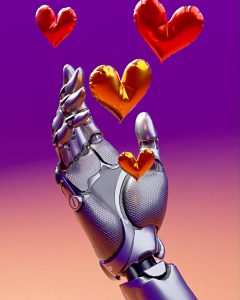Items about Isaac Asimov and AI, Adrian Tchaikovsky and octopuses and AI, SF magazines and AI-generated stories.
The Atlantic, Jeremy Dauber, 3 Mar 2023: What Isaac Asimov Can Teach Us About AI, subtitled “The science-fiction writer imagined artificial intelligence—and what it might want—long before this uncanny reality ever became our own.”
Isaac Asimov, of course, wrote a couple dozen stories and two or five novels about robots, built in the shape of human begins, and instilled with what Asimov (and his editor John W. Campbell) called the three laws of robotics (which you can read about at the link). His speculations may not exactly apply to current developments in AI, because the latter aren’t mobile devices expected to take orders from humans. But maybe they do.
It turns out, though, that what his stories tend to be remembered for—the rules and laws he developed for governing robotic behavior—is much less important than the beating heart of both their narratives and their mechanical protagonists: the suggestion, more than a half century before Bing’s chatbot, that what a robot really wants is to be human.
Ah, the Pinnochio theme, which we saw in Asimov’s story “The Bicentennial Man” and later in Trek TNG’s character Data. Dauber is comparing those stories with the example of Bing expressing love for a human it had a conversation with. (Of course these modern AIs are generating their output through grinding up the entire contents of the internet and supplying what most often comes next in conversations similar to the one in progress.)
Dauber gets Asimov right — his stories were mystery puzzles in which humans misunderstood the three laws and had to figure out why the robots weren’t obeying as expected. But the later story I just cited is there too. And that’s what Dauber was driving at from the beginning, it turns out, as he concludes,
The humanity of Asimov’s robots—a streak that emerges again and again in spite of the laws that shackle them—might just be the the key to understanding them. What AI picks up, in the end, is a desire for us, our pains and pleasures; it wants to be like us. There’s something hopeful about that, in a way. Was Asimov right? One thing is for certain: As more and more of the world he envisioned becomes reality, we’re all going to find out.
\\

NY Times, Ezra Klein, 24 Feb 2023: Inside the Minds of Spiders, Octopuses and Artificial Intelligence, subtitled “The science fiction writer Adrian Tchaikovsky explores what an explosion of A.I.-produced content would mean for human society and the human spirit.”
Alas, I’ve never read Adrian Tchaikovsky, and I’ve only skimmed this interview. Saved for later. There is a mention of The Mountain in the Sea, a recent SF novel also about octopuses, by Ray Nayler. My interest in novels like this involves the whole idea of non-human intelligence. Are there things very different species would perceive and understand about the world that humans cannot? At the same time the discussion concerns AI as much as octopuses.
Long interview (an hour). I’ll get to his books sometime.
\\

NY Times, Michael Levenson, 23 Feb 2023: Science Fiction Magazines Battle a Flood of Chatbot-Generated Stories, subtitled “While the deluge has become a nuisance, the stories are easy to spot. The writing is ‘bad in spectacular ways,’ one editor said.”
Another item about science fiction and AI! Moreover, concerning science fiction magazines, periodicals which typically have a couple tens of thousands of subscribers at most, getting attention in the NYT!
This was in the news for a couple weeks before it got attention here.
The editors of three science fiction magazines — Clarkesworld, The Magazine of Fantasy & Science Fiction, and Asimov’s Science Fiction — said this week that they had been flooded by submissions of works of fiction generated by A.I. chatbots.
To the point where Neil Clarke, editor of Clarkesworld, simply closed all submissions. Developments pending.






